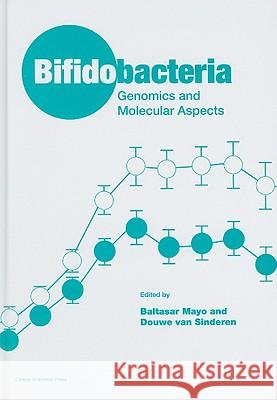Bifidobacteria: Genomics and Molecular Aspects » książka
Bifidobacteria: Genomics and Molecular Aspects
ISBN-13: 9781904455684 / Angielski / Twarda / 2010 / 272 str.
Bifidobacteria are Gram-positive anaerobic bacteria, found naturally in the gut of humans and other mammals. They are widely used as probiotic organisms in a vast array of formulations for the prevention, alleviation, and treatment of many intestinal disorders. However, bifidobacteria are fastidious microorganisms and are difficult to study in the laboratory, so until recently, understanding of their genetics lagged behind that of other high GC content Gram-positive bacteria. The application of modern whole genome approaches to bifidobacteria research has changed all of this, permitting the accumulation of an impressive amount of data, something that could not have been foreseen a few years ago. This book brings together the expertise and enthusiasm of the leading bifidobacteria researchers from around the world to provide a state-of-the art overview of the molecular biology and genomics of this exciting and important microbial genus. Topics include: ecology, genomics, comparative genomics, metabolism, acid and bile resistance, stress response, probiotic properties, antimicrobial activity, interaction with the intestinal mucosa, safety assessment of bifidobacteria, synthesis and utilization of exopolysaccharides and prebiotics, antibiotic resistance/susceptibility profiles, viability and stability in commercial preparations, mobile genetic elements, cloning vectors and genetic manipulation of bifidobacteria. The book will be essential reading for every bifidobacteria researcher, from the PhD student to the experienced scientist, and it is recommended reading for everyone with an interest in probiotics.











